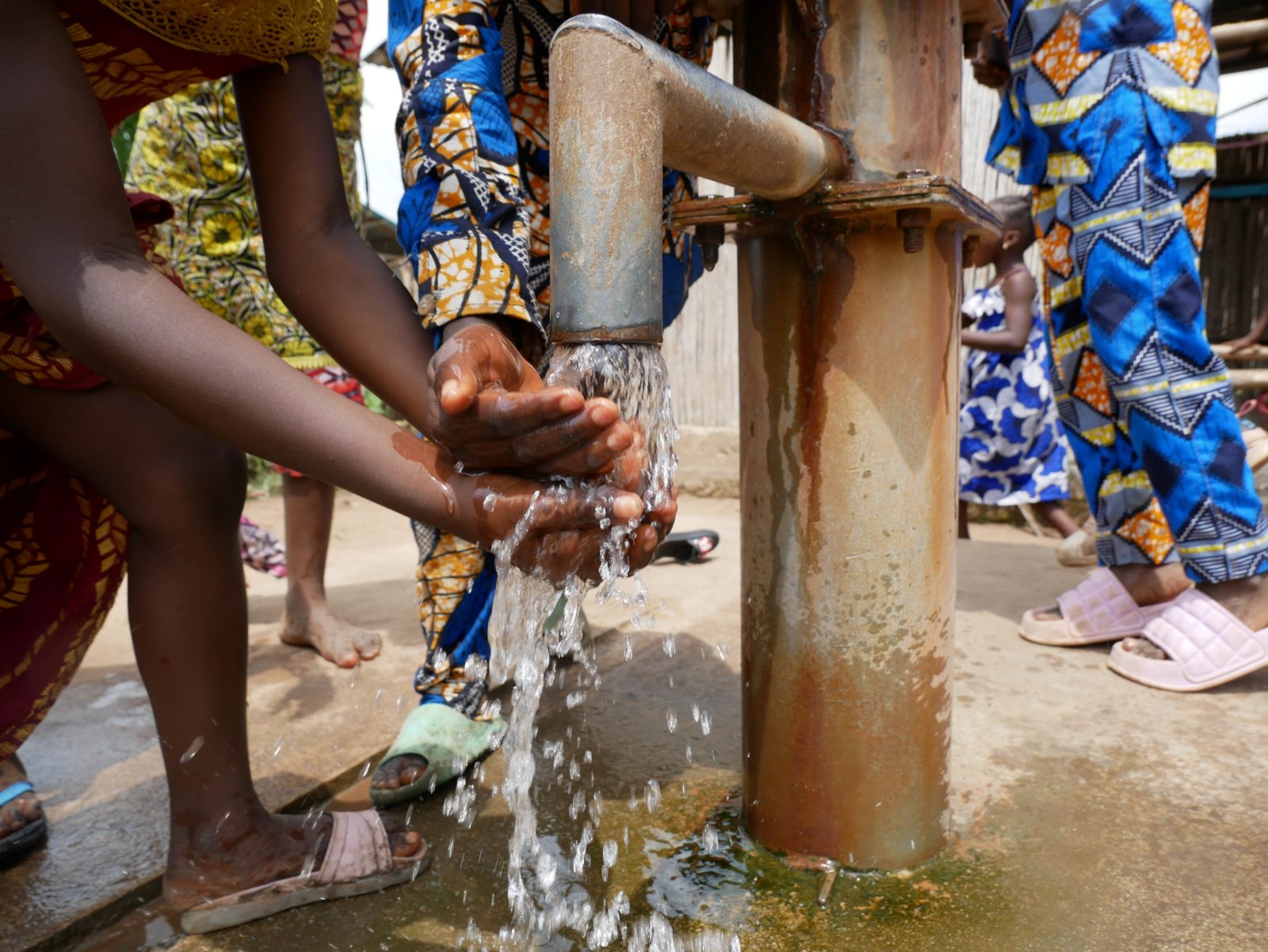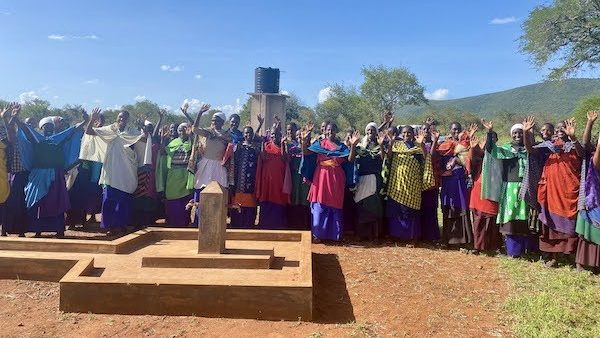
When our team arrived in Namalulu Village in Tanzania, the welcome we received was nothing short of heartwarming. A group of women, dressed in vibrant, colorful clothes, surrounded us with cheers, clapping, and singing—a celebration we will never forget. One thing was clear: joy now flows like water through Namalulu Village.
But it wasn’t always this way.
Before Global Aid Network (GAiN) helped install a well in the village, life was incredibly challenging for the people of Namalulu. Women and children had to walk long distances to find water, and when they did, it was often unsafe. Drinking this water led to chronic sickness and diarrhea, making families even more vulnerable.
Thanks to the new well, however, this community of 1,600 people now has access to clean water—and with it, a new sense of health, hope and possibility.
Give other villagers the gift of safe water and renewed hope today.
Enkeeyon Kirikai, a mother of four who has lived in Namalulu for 30 years, shared how the well has changed her family’s life. “It’s a miracle,” she said. “We’re able to stay clean, wash properly and have enough water in our homes. We can rest and do other important things, instead of spending hours searching for water. God bless you.”
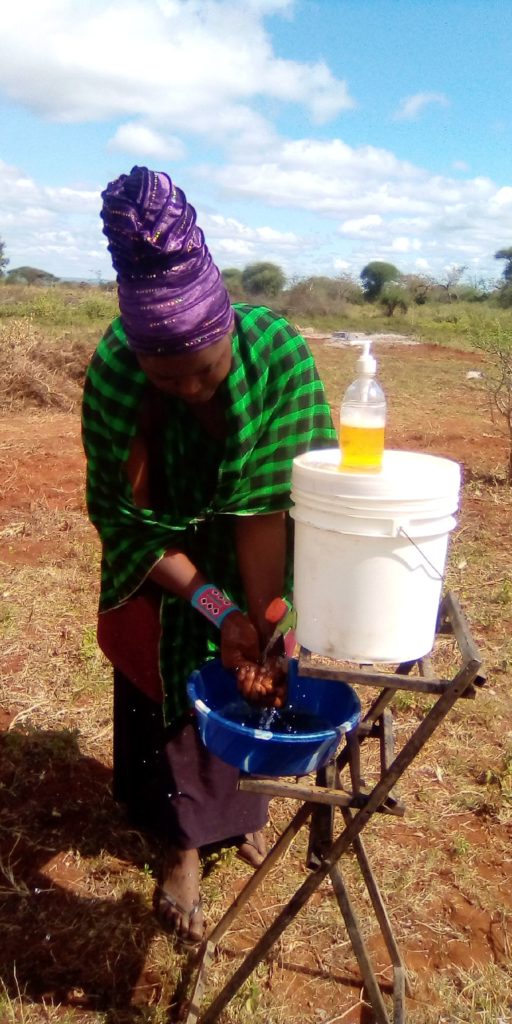
Along with the installation of the well, GAiN introduced Hygiene and Sanitation Training, helping the community adopt healthy habits like regular handwashing to prevent disease. The results were immediate. Villagers began cleaning their surroundings, keeping cattle away from the well and regularly washing their jerry cans.
One woman proudly shared, “Now that I know the importance of washing my hands, I will make sure I always wash my hands and use clean and safe water.”
As part of our ongoing support, our team led Household Harmony Training, which brought men and women together for open discussions about gender roles and domestic abuse, fostering mutual understanding and empathy. One man shared, “I now understand that violence doesn’t solve my problems at home. Talking with my partner helps.”
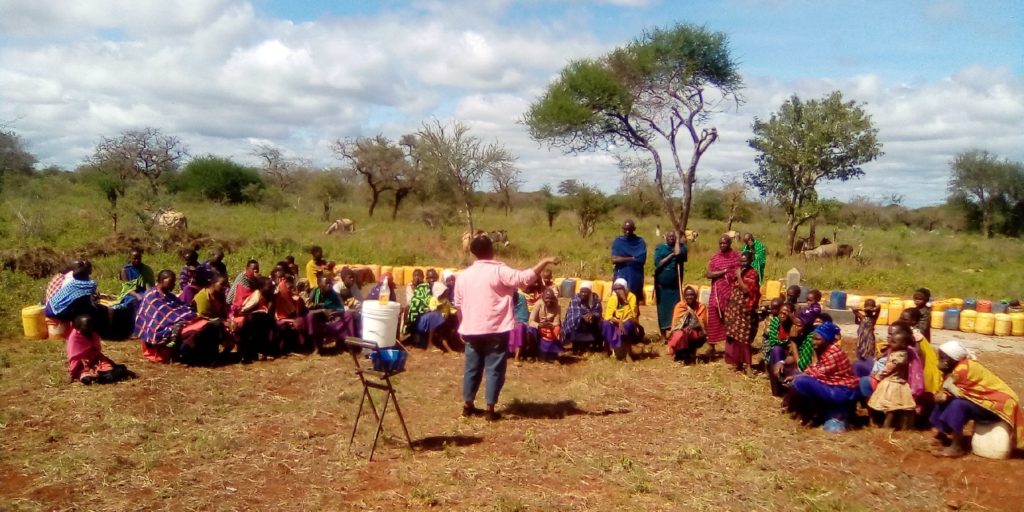
Sharing the gospel and bringing spiritual encouragement is at the heart of what we do in each village. Through door-to-door gospel outreach, showing the JESUS Film and leading Action Group training and discipleship sessions, we had the privilege of telling Namalulu Village about Jesus and equipping them with tools to grow deeper and stronger in their faith. As a result, 69 people have come to Christ, and 79 are being discipled in their faith.
Alamayani Kirikai, a villager in the community, shared his testimony after watching the JESUS Film: “I was deeply touched by the film about the life of Jesus and was moved to receive Jesus. May you be greatly blessed.”
At GAiN, we believe every person is made in the image of God (Genesis 1:27) and is worthy of dignity, compassion and the opportunity to thrive. That’s why our mission is to reveal hope by sharing God’s unconditional love, and restore life by demonstrating the gospel through compassionate action—especially to those experiencing poverty, injustice, and crisis around the world.
In villages like Namalulu, Tanzania, access to clean water has done far more than end the daily struggle for safe drinking water. It has sparked physical healing, restored relationships and infused the community with hope. Most powerful of all, it has opened hearts to the life-changing message of Jesus Christ.
This is the kind of transformation we long to see in every village we reach—one that touches body, soul and spirit.
But we can’t do it alone.
Today, we invite you to join us in making this dream a reality. Our goal is to raise $130,000 by June 30th, 2025 to bring clean water and the Living Water to 10,000 people in 10 communities.
A simple “yes” can set lasting change in motion—improving health, strengthening families, helping communities thrive and igniting new opportunities to share the gospel for generations to come.

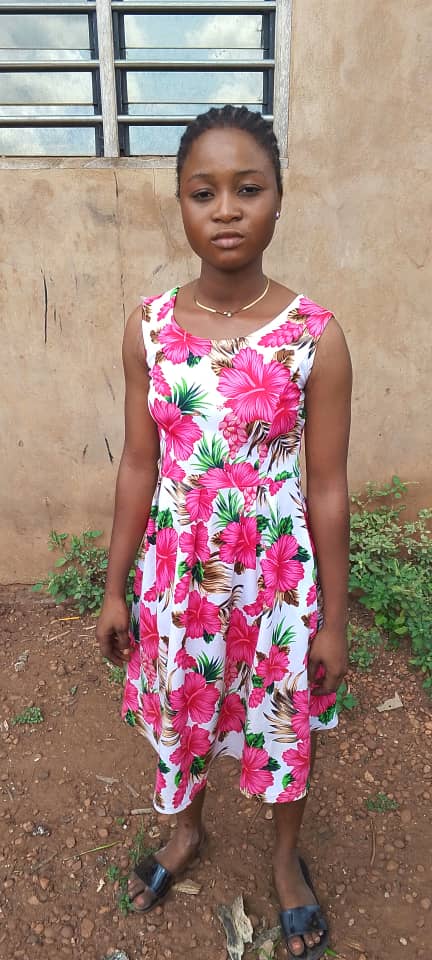
We partnered with Days for Girls to educate, strengthen and encourage young women in African communities about their menstrual health. This past season, we were able to meet with 80 girls in the village of Dossouhoue, Benin, gifting each of them with menstrual hygiene kits.
Below are some testimonies from a few of the girls who were deeply impacted by the menstrual hygiene training and packages.
“My name is Dagoudo Sonia. I am 19 years old, from Kaetamey. I am really grateful for this training that I participated in because it changed my behavior, concerning my [menstruation]. I learned that ovulation is a moment for girls, she can get pregnant if she goes with a man. I also [learned] that if I don’t wash the reusable cloth properly, it could bring some diseases. Thank you!
A girl named Mahouchi Ghislaine shared, “ I am 17 years old [and] I’m from Applahoué. I would like to thank . . . GAiN for giving me training. Because through this training, I am able to start to calculate my menstrual cycle. Moreover, I will prepare myself before my menstrual days. I have also learnt about menstrual hygiene, [and] should regularly wash my reusable cloths properly and keep them in a dry place. Thank you very much for the training and the gifts.”
Lastly, a young woman named Megan Lucrèsse shared, “I am 16 years old, from Dossouhoue. I thank GAiN Benin very much for offering me reusable cloths because it helped me to stop buying disposable cloths. Reusable cloths [are] also comfortable and soft. It helps avoid some small diseases. May the Lord bless you for your generous donation.”
Thanks to the support of our generous partners, the lives of young women like Dagoudo Sonia, Mahouchi Ghislaine and Megan Lucrèsse are forever changed. They are now equipped with valuable knowledge that will keep them safe and healthy, and help them walk with dignity when it comes to their menstrual hygiene.


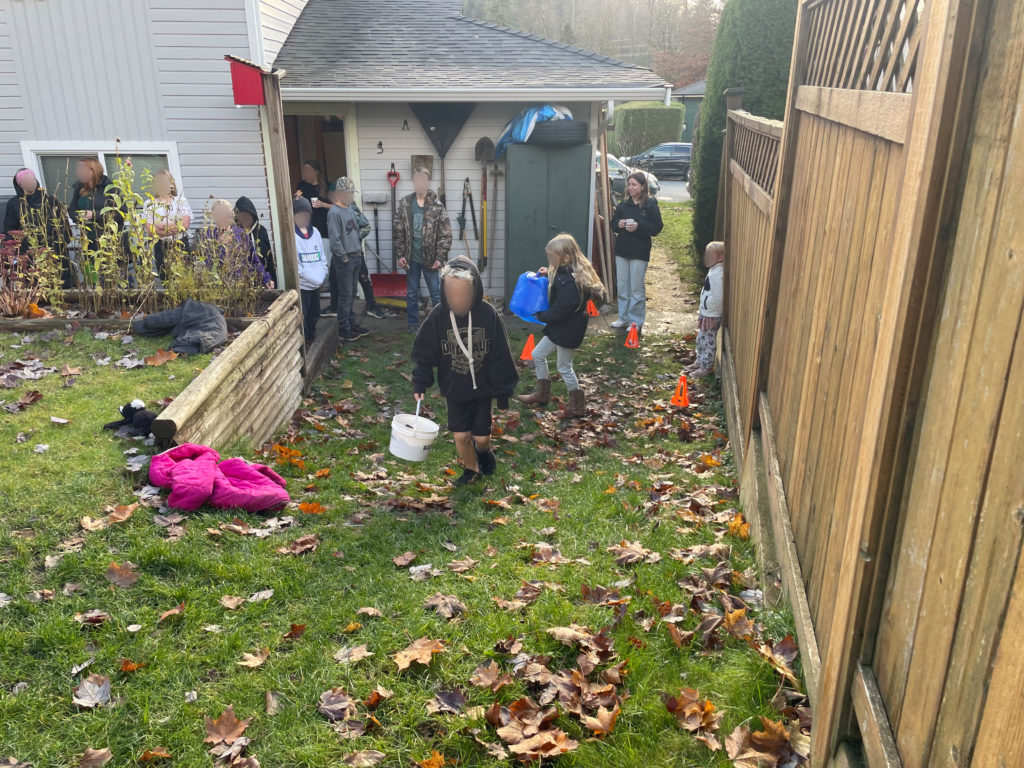
This past week, Sarah Rhea, Copywriter & Communications Coordinator for GAiN, visited a homeschool to share about our work providing clean drinking water to communities in Africa.
The kids ranged from ages pre-K to middle school and were gathered together on blankets and chairs inside an open garage to hear more about the Water for Life Initiative. They had recently finished reading the book A Long Walk to Water by Linda Sue Park, and so they had some context for what life is like for people in other countries who don’t have easy access to clean water.
Sarah went through a slideshow and explained how kids their age have to walk about five kilometres to collect water multiple times a day, and that it’s usually riddled with harmful bacteria that makes them sick.
“When I shared a picture of a swamp that one village used to get water from, some of the kids gasped. I think it was pretty eye-opening,” Sarah said.

To help the students imagine what it would be like to have to carry water back to a village, Sarah set up a course that they had to walk through while carrying a heavy bucket of water. The course included a steep hill and some orange cones which represented the rough terrain that someone from a village would have to navigate while carrying water.
“I also had them pretend that it was super hot out, so one kid stood with a fan to help them picture that. And then another kid pretended to be a wild animal that they had to get past with their bucket,” Sarah explained.
The students were all very engaged and had all kinds of questions after the presentation was over. One young boy even asked if GAiN had ever drilled wells for people in Quebec!
Afterwards, everyone had the chance to make a card for our GAiN staff that work on the ground in Africa. The cards were beautifully decorated by the kids and had a handwritten message that thanked the staff for working so hard to drill wells for communities in need. These cards will be sent with the next GAiN staff member who travels to one of our project countries and delivered to our team there.
“The kids were so interested and keen. It was really encouraging to have them be so invested in what’s happening on the other side of the world from them,” Sarah said.
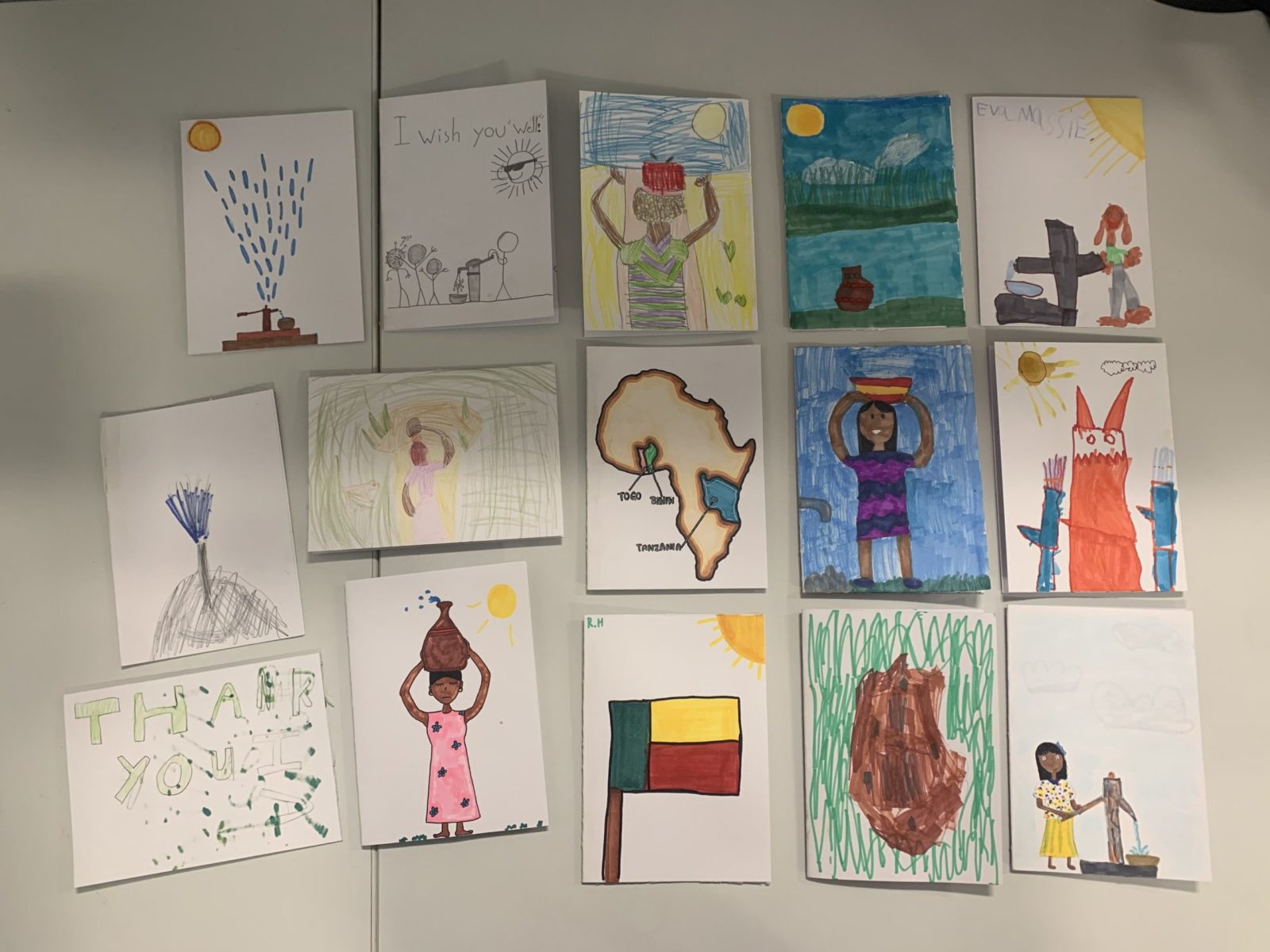
Two of the kids in the group have also begun making cards and selling them to raise money for GAiN.


Additionally, their parents put on a silent auction amongst friends with all the proceeds going towards clean water. It is such a delight to our staff to see families, especially young children, take initiative to support the work we are doing in communities in Africa!
If you would like to order one of these cards, you can fill out this Google form: https://docs.google.com/forms/d/1UONtezSWF8-PR4BwSf7SZTukhGxvxwVhwtL1NOIy6aU/edit
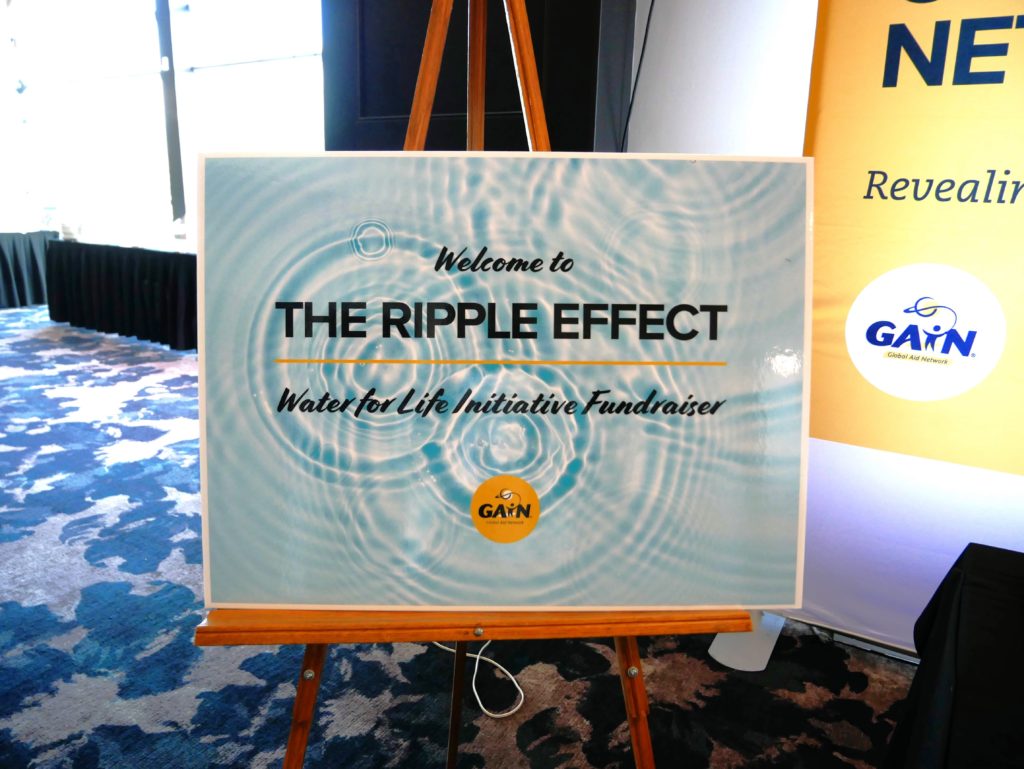
The Water for Life Initiative fall fundraisers this past month were a roaring success! Our team had a blast meeting with people from across Canada and getting the chance to share more about the waves of positive change we are seeing in the countries where we work.
Our theme this year was “The Ripple Effect.” Just as a drop of water creates a series of ripples on the surface of water, so too does a single event, like providing people with access to clean water, have a powerful far-reaching effect on other areas of life. Not only does it transform physical health, but it impacts people’s relationships, spiritual wellbeing, daily rhythms and hope for the future.
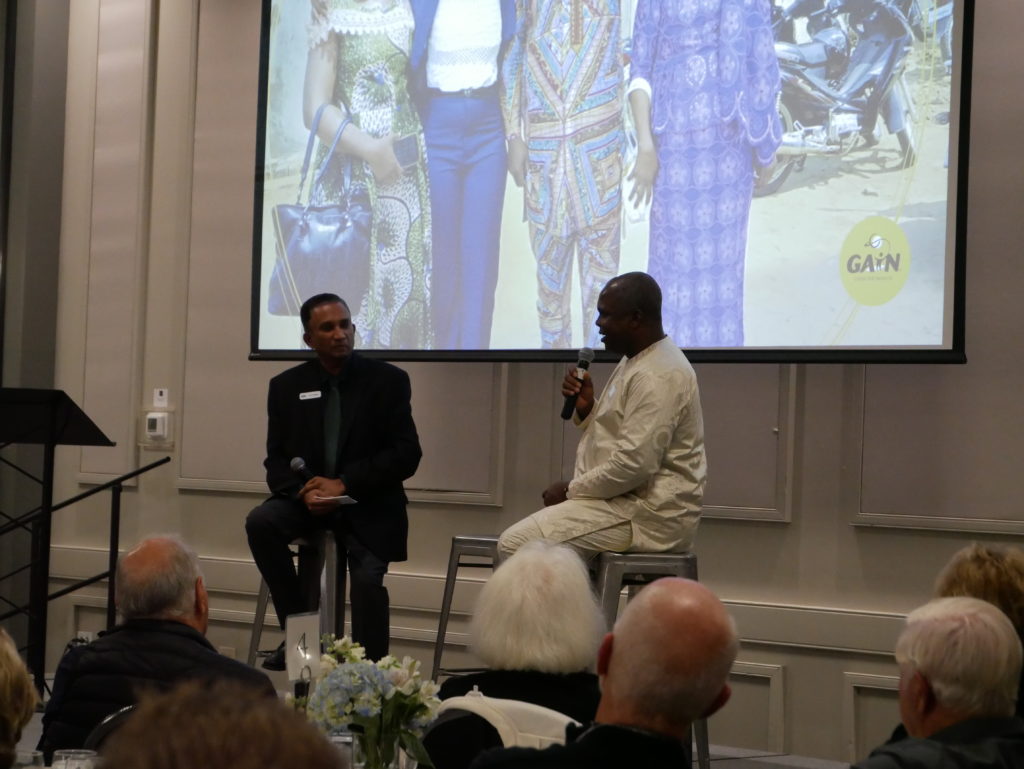
The events kicked off in Abbotsford, BC at the Clarion Hotel, where we hosted over 170 guests from the Lower Mainland area! Our local staff each hosted a table and had the chance to meaningfully connect with our donors over a delicious dinner and dessert. Our CEO, Aaron Rogers, and Patrice Lavagnon, Country Manager for Benin and Togo, carried the bulk of the evening, sharing beautiful stories of impact that have happened over this past year.
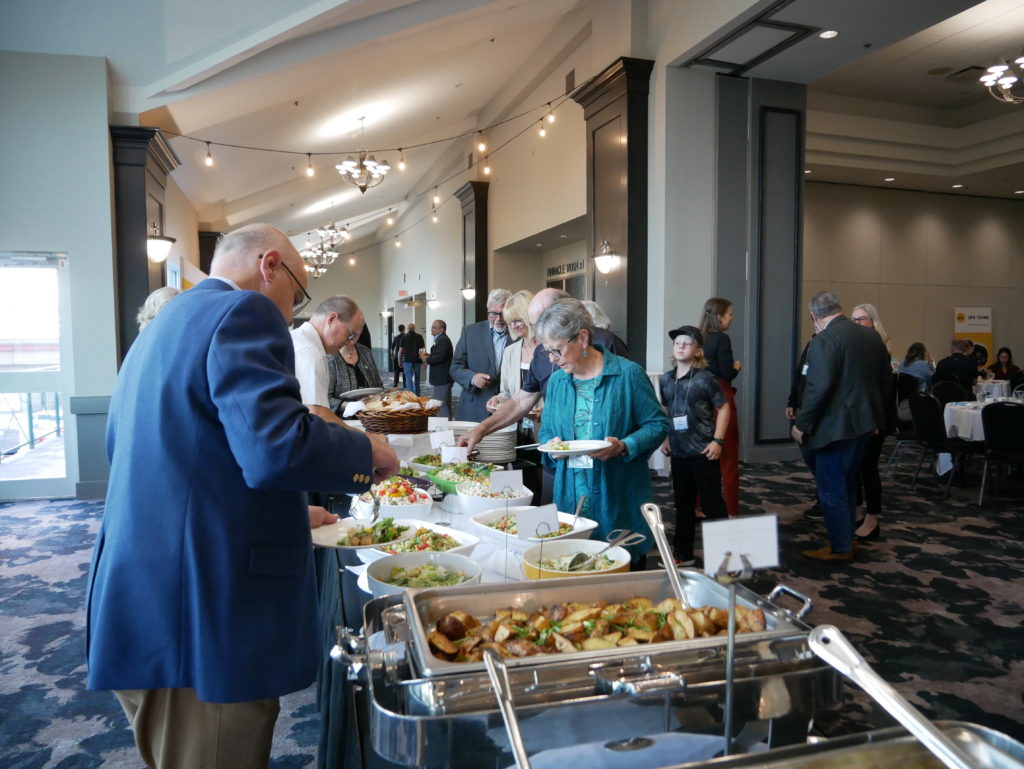
The following evening, we put on a Paint + Sip night in downtown Abbotsford. Participants ate charcuterie and sipped mocktails as they were led in an acrylics painting tutorial by talented artist Judy Smith. Patrice came as the guest speaker and talked about the significance of the picture, explaining that women in Africa are primarily burdened with the task of finding drinking water for their families. Most people who attended were new to GAiN, and so it was a lovely night of spreading awareness and getting people connected into the work that we do.
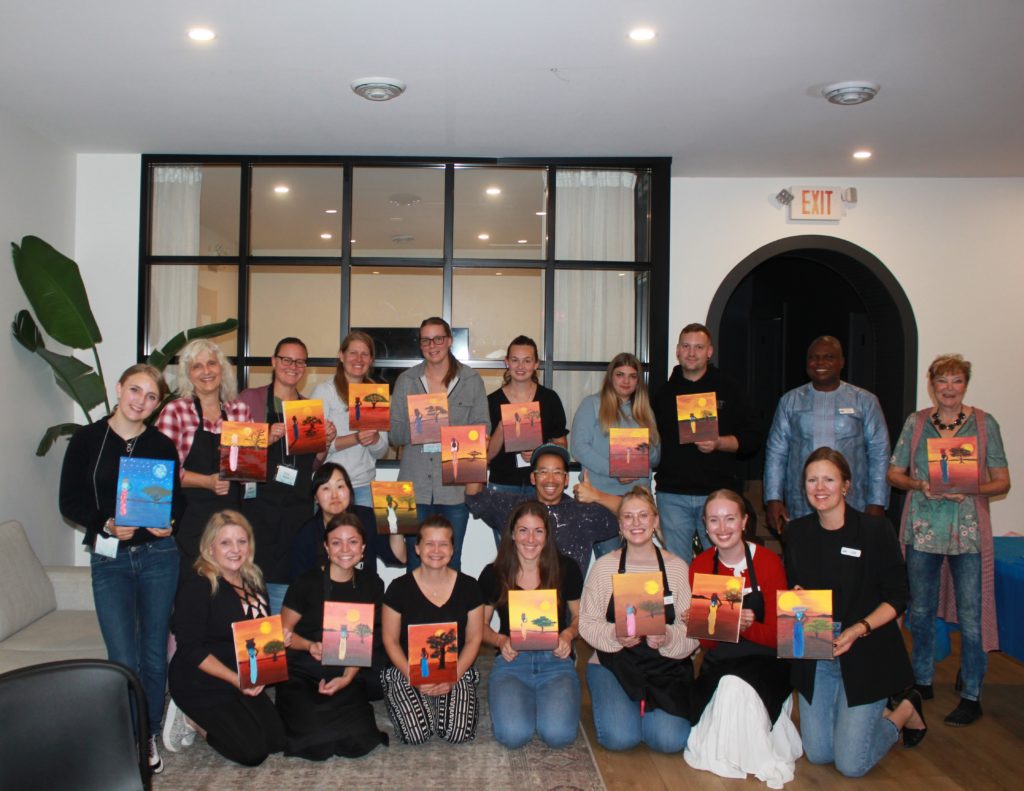
After the flurry of our BC events, Aaron and Mike Feenstra, Relational Manager for GAiN, met with some donors in Manitoba for some more one-on-ones and a few small gatherings. Throughout the trip, our team made some amazing connections with our ongoing church partners and even had the chance to form new relationships with other churches.

Following our time in Manitoba, some of our team members flew east to help our local staff with the Toronto fundraisers. Our large dinner gathering happened at the Weston Hotel and our second Paint + Sip event was hosted at Pinot’s Palette. One of our staff, Ravi Chandran, also headed up a second dinner event, featuring special guest speaker Charles Price and musician Ruth Ann Onley. Each evening was filled with energy and warmth as people listened attentively to the ways that access to clean water is changing every aspect of reality for communities in Benin, Togo and Tanzania.
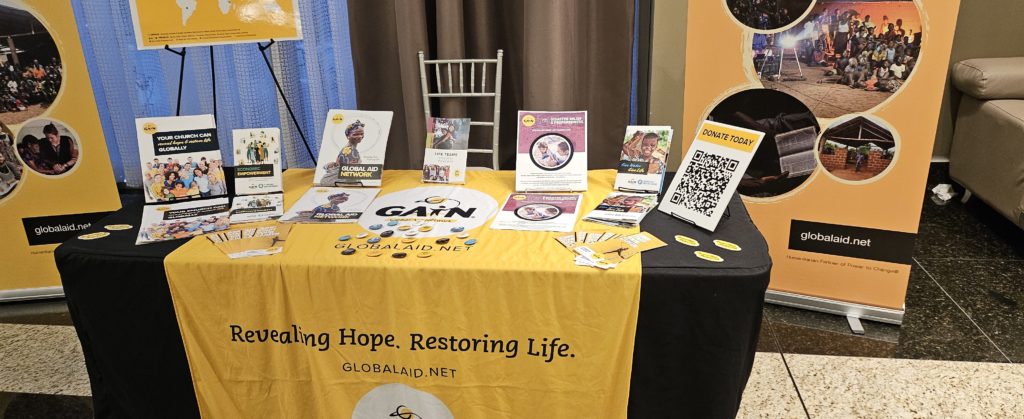
Aaron and Mike Feenstra, Relational Manager for GAiN, travelled to Alberta for more one-on-ones. It was a wonderful time of sharing more testimonies of God’s faithfulness and forming bonds with partners.
We want to say a big thank you to everyone who came and supported our events this year! We are honoured as an organization to do the work that we do, helping create powerful ripples of change in all areas of life for communities in Africa.

On June 25th, the Cherry Trees Band played a show called a “Concert for Water in Africa” at Hughs Room Live in Toronto. All the proceeds of their show went towards supporting our Water for Life Initiative efforts in Benin, Togo and Tanzania.
The venue, which has hosted some of Canada’s biggest musicians like Joni Mitchell and Gordon Lightfoot, was packed full with a lively crowd that night.
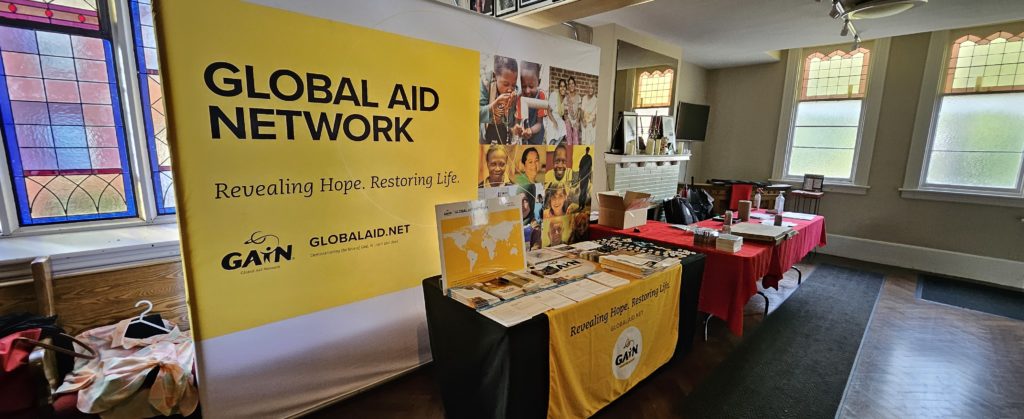
“The event was unbelievable,” said Ravi Chandran, staff member at GAiN Canada. “So well done in every aspect. The evening was so happy and purposeful that one did not feel like leaving the hall. I cannot wait for the next one!”
The concert marked the conclusion to the band’s campaign, Matumaini (“hope” in Swahili), which began in 2020 and generated $131,646. So far, their fundraising efforts over the years have raised almost $238,000, funding 28 water wells for approximately 28,000 people in Africa.

With their name reminiscent of the word “charity,” the Cherry Trees Band has devoted themselves to changing the world for the better. Their team consists of over 30 volunteers, sponsors and donors, all working together to make a difference in the lives of those who lack access to safe water. The musical group has even gone on to record an album after each of their campaigns over the years, naming each in honour of their fundraising efforts.
Our team at GAiN loves witnessing the creative vision and passion that people like the Cherry Trees Band have for helping give clean water to communities in Africa. We are so encouraged by their willingness to use their talents and skills to partner with us and change the lives of those across the world!


The Cherry Trees Band (left to right): Jay Couse, Terry O’Brien, Shardie Stevenson, Steve Mallory and Gary Gardner.
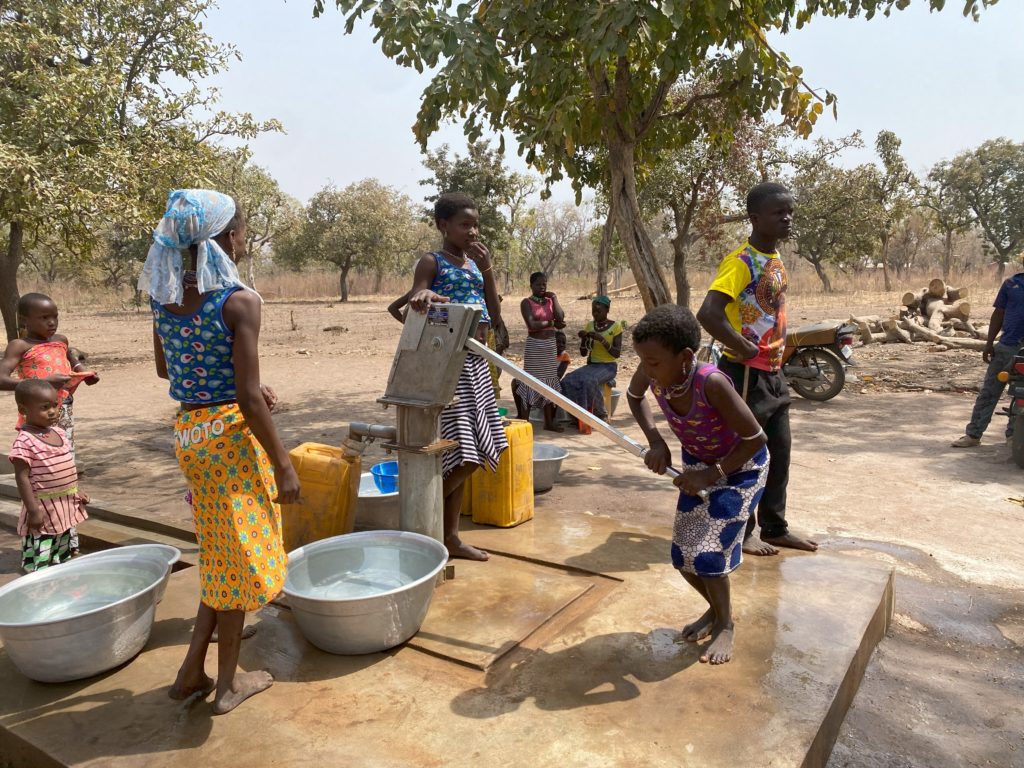
The village of Laawa in Benin wasn’t always the vibrant and stable community that it is today. Before Global Aid Network (GAiN) arrived in 2022 with a water well, villagers suffered from a variety of hardships caused by a lack of safe water and educational opportunities.
A man from the village shared that the community was always riddled with “many infectious diseases, especially among our children and women – diseases such as diarrhea, vomiting, stomach aches and sore throats.” Additionally, women were forced to spend most of their time on an arduous journey to collect unsafe water, while children were set on a track to grow up without education or hope for a better future.
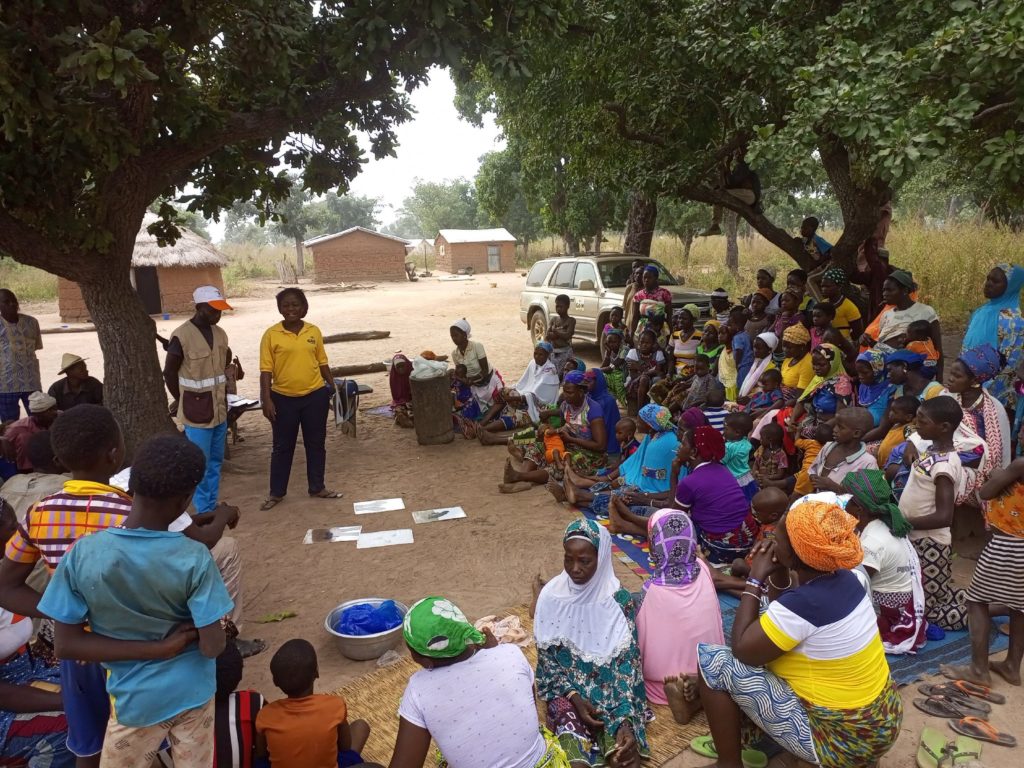
Once GAiN provided the community with a new water source, change slowly began to ripple into Laawa village. As people began to drink clean water and put into practice what they learned from Hygiene and Sanitation Training, sickness gradually disappeared from the community.
A member of our GAiN team shared that “during this second Hygiene and Sanitation Training, the population came out massively because they were very happy with the past training.” The community’s eager engagement revealed a desire to grow stronger and healthier together.
Relationships between men and women also began to heal and shift in a positive way.
One woman praised GAiN’s Household Harmony workshop and how it empowered participants to have empathy towards the opposite gender. She shared: “This training is good training because it talks to us about how we must live together from now on. Before, women did not participate in decision-making during our meetings but from now on it will involve us in decision-making.”
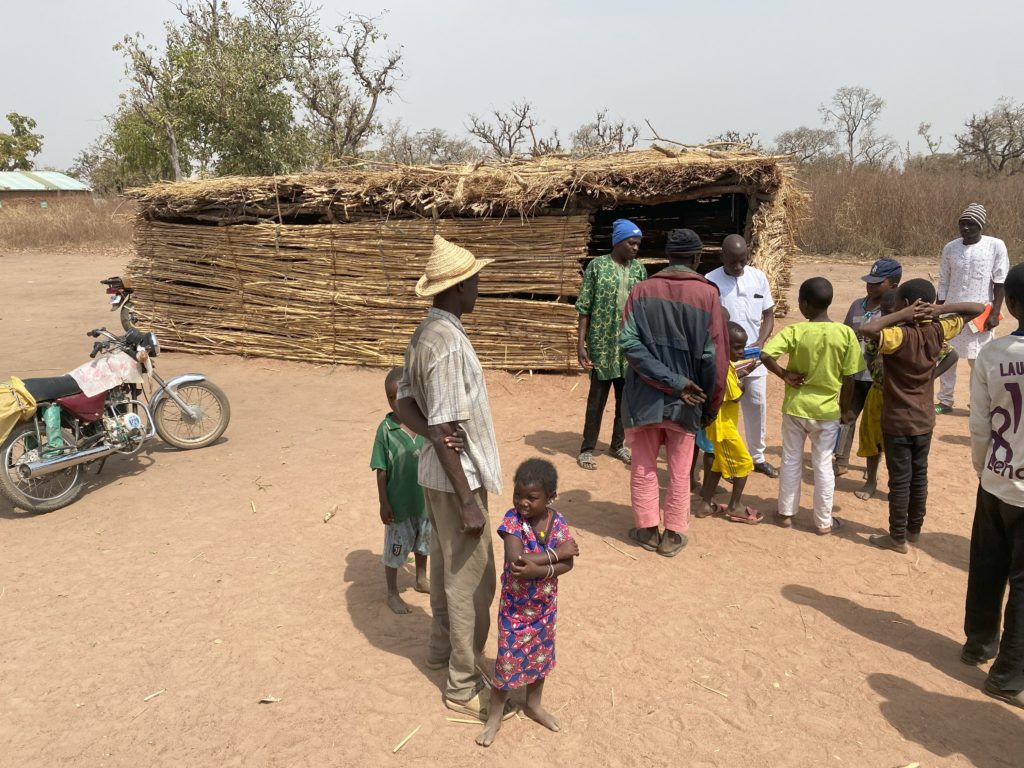
Perhaps one of the greatest ripple effects of the water well is that it has made room for children to receive education. With easy, direct access to safe water, kids no longer have to spend hours each day gathering water and can attend school instead.
During a recent visit to Laawa village, GAiN was overjoyed to see how the gift of water has freed up children to engage in their studies. The community even took the initiative of starting their own school after GAiN encouraged them that education can help eradicate poverty, bolster economic development and empower the next generation.
Bio Djobo, the headmaster and teacher of the village school, explained that there are 61 students currently attending the village school.
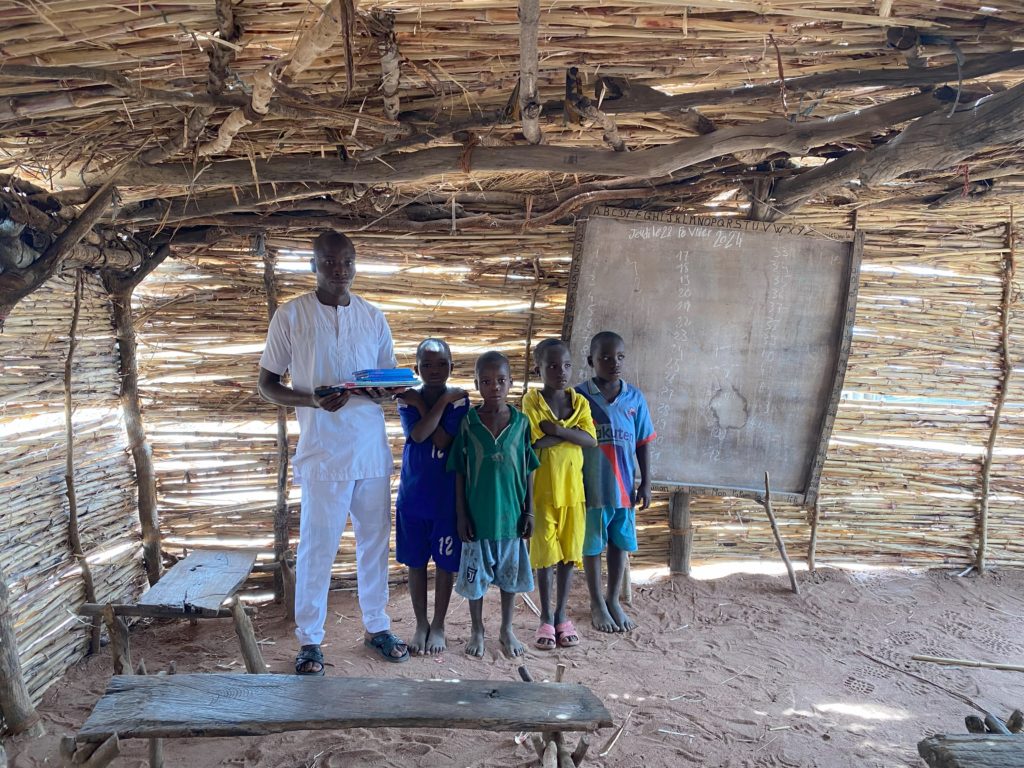
“I [teach] them how to read and [am] currently teaching them syllables and vowels,” he shared.
Access to clean water has not only created opportunities for the village to receive education, but to hear the gospel as well. During the showing of the JESUS Film, 713 people attended and 63 gave their lives to Jesus. One villager named Sofou Lokotoro shared, “Through this film I can say that Jesus is the real love of God manifested. I accept it.”
Of the 63 new believers, 41 decided to receive follow-up training and discipleship in their faith. A woman named Kouvi Djodi said,“I undoubtedly understand that without Jesus no one can go to God.” We are overjoyed at the openness of this community to receive the love of Jesus and step into a new way of life.
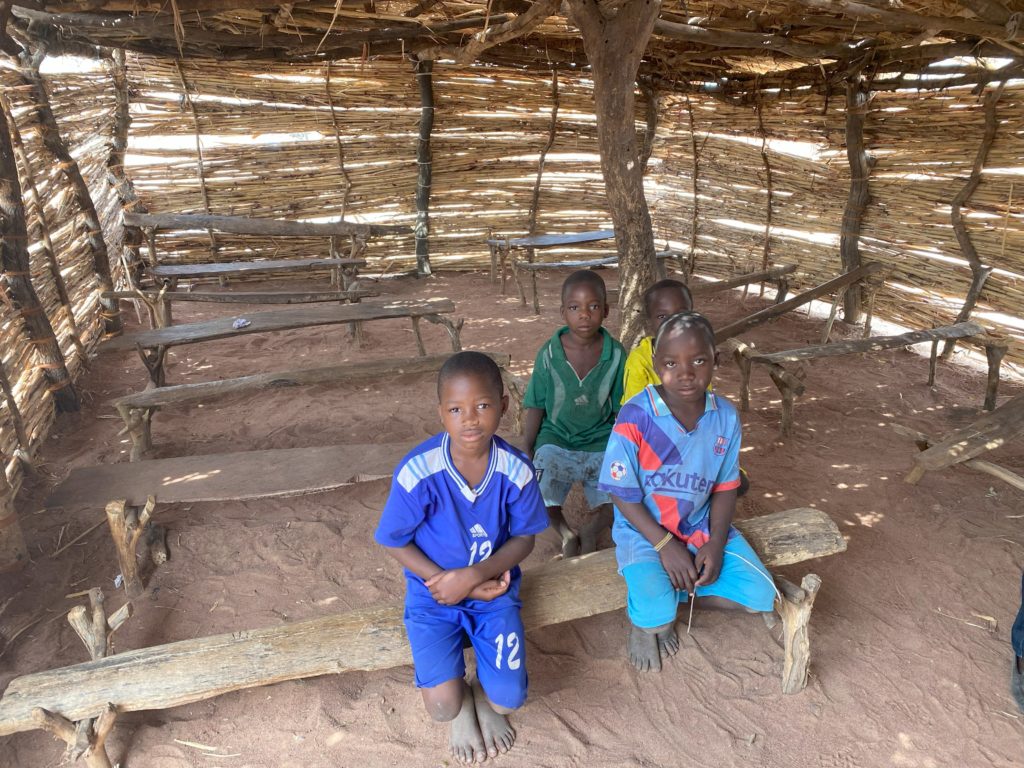
The powerful gift of clean water has produced an abundant ripple effect of change in Laawa village. Not only has it allowed GAiN to partner with the community of Laawa in improving physical and relational health and encouraging education in the community, but it has served as a doorway to share the love of Christ with them.
Can you imagine if every village had this same experience?
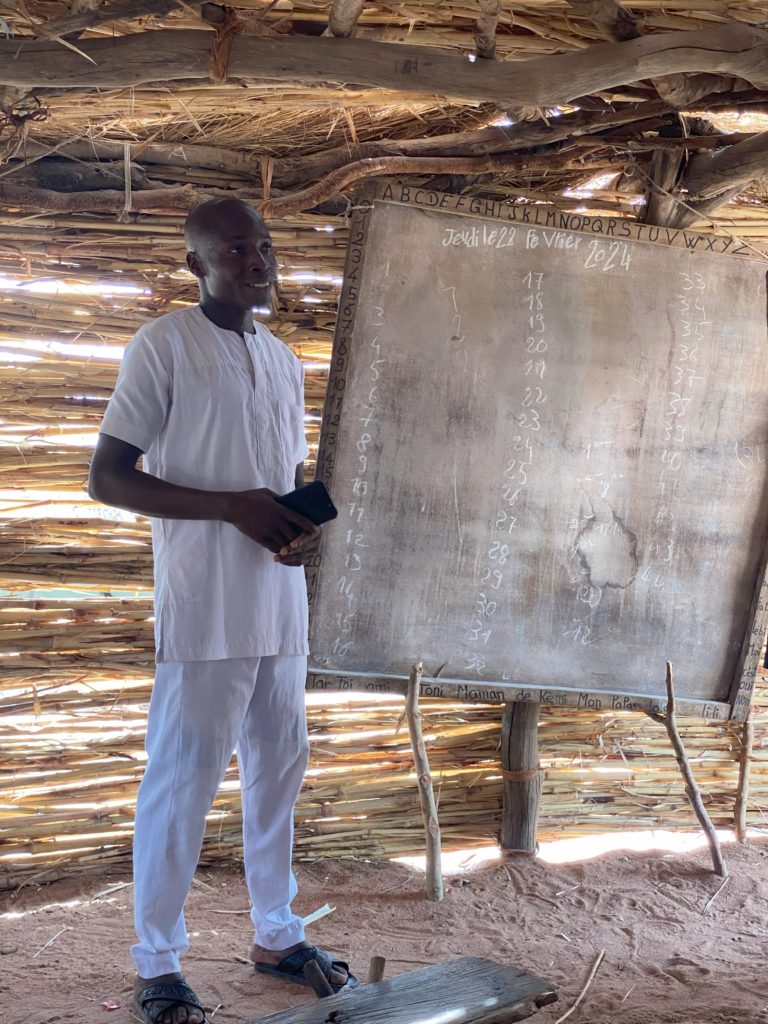
Colossians 3:17 says “And whatever you do, in word or deed, do everything in the name of the Lord Jesus, giving thanks to God the Father through him.” In all that we accomplish through our Water for Life Initiative, we seek to honour the Lord and make His love known to all people. At GAiN, our mission is to reveal hope by sharing God’s unconditional love, and restore life by demonstrating the gospel through compassionate action to those who are living in poverty, injustice and crisis around the world.
Our dream is that every individual, family and community would be introduced to this way of life – a life that is marked by physical, emotional and spiritual flourishing. Yes, we acknowledge this is a big dream! That’s why we want to invite you to come alongside us and help make it a reality.
Our goal is to raise $260,000 to provide 20 communities (around 20,000 villagers) with clean water and the Living Water.
A generous donor reached out to us with a matching opportunity. If you choose to provide a village with access to clean water and the Living Water today, your gift will be DOUBLED—dollar for dollar—up to $50,000!
Will you join us in our mission to create powerful waves of change in communities that lack access to safe water, education and the opportunity to hear about Christ’s love? We know that even the tiniest splash can produce a ripple effect of transformation in the lives of others.
We hope you will say yes. Thank you for your partnership!
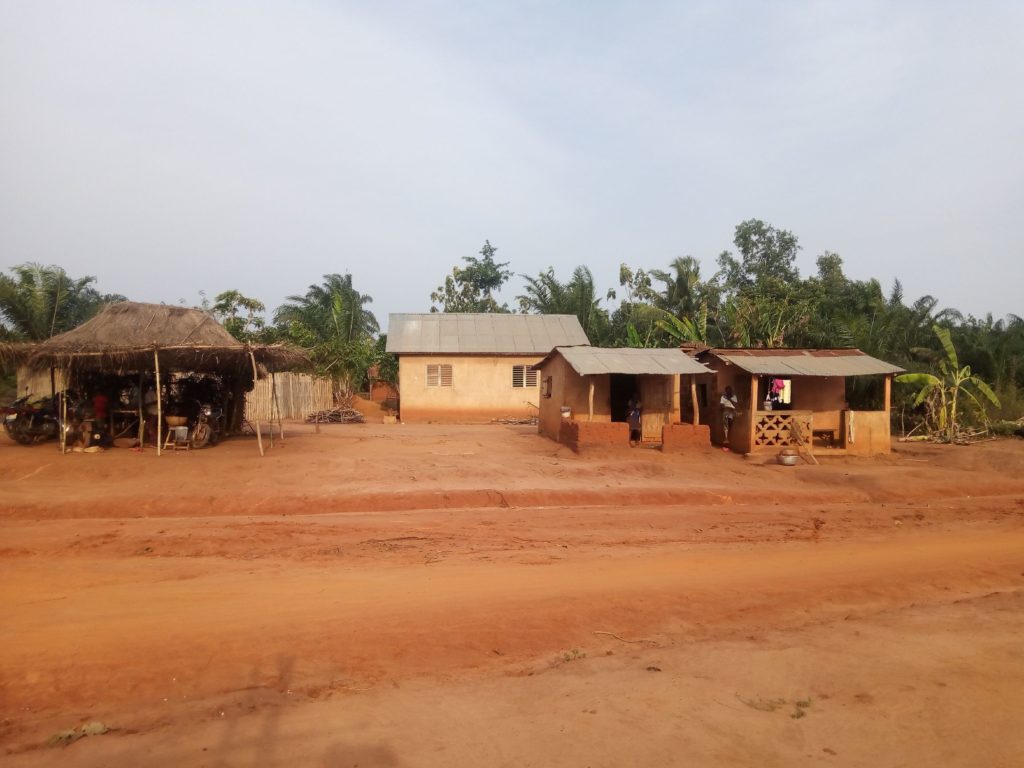
Down a winding dirt path in the thick of leafy green bushes and trees lives a small community in Benin. Humble mud huts and wood fences dot the land as barefoot children wander around, holding hands with younger siblings and calling out to one another in Fon. This is the village of Vongnigodo.
When GAiN provided a well for their community back in 2016, it caused a revolutionary shift in the daily rhythms of the people that continues to have a positive effect on their world today. Not only did access to safe water cleanse and restore the physical health of villagers– it gave them the gift of time.
Julien, Ghislain and Adolph are three members of Vongnigodo’s well committee who described to our team the ways in which the well has radically impacted their village.
“Before the water well, we had a lot of disease and stomach aches,” Julien explained. “Since the water well arrived, we are free from all these diseases. Before, we walked long distances, but with this water well, we save time. So it means that women don’t go far away before getting water.”
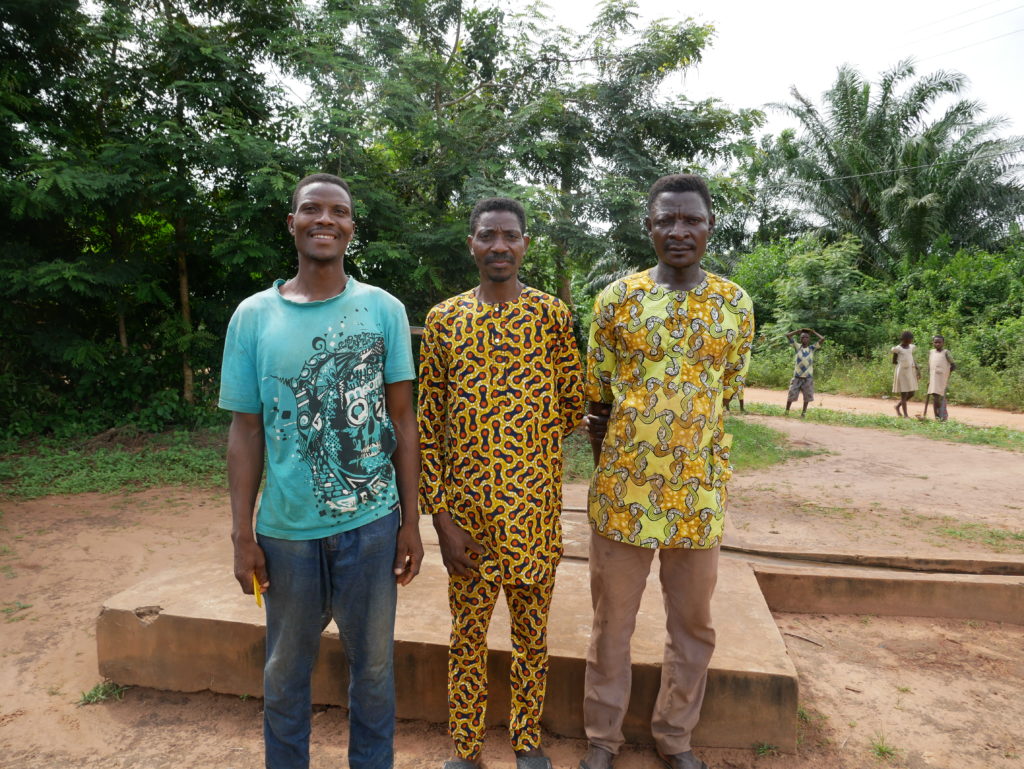
He also shared that women would have to gather water three times a day, walking a kilometre and a half one way in order to reach a stagnant, muddy stream. Although this water is filthy, Vongnigodo would use it for everything, including drinking, bathing and washing their clothes.
After expending most of their energy on filling up buckets, women would then be forced to trek back uphill with the heavy weight of the dirty water balanced atop their heads. Since women in this community also farm during the day, they must gather water in the early morning before joining the men in the field.
“Women [were] tired after they [collected] water,” Ghislain shared. “Because they [were] tired, they [didn’t] have capacity to do all the activities in the day.”
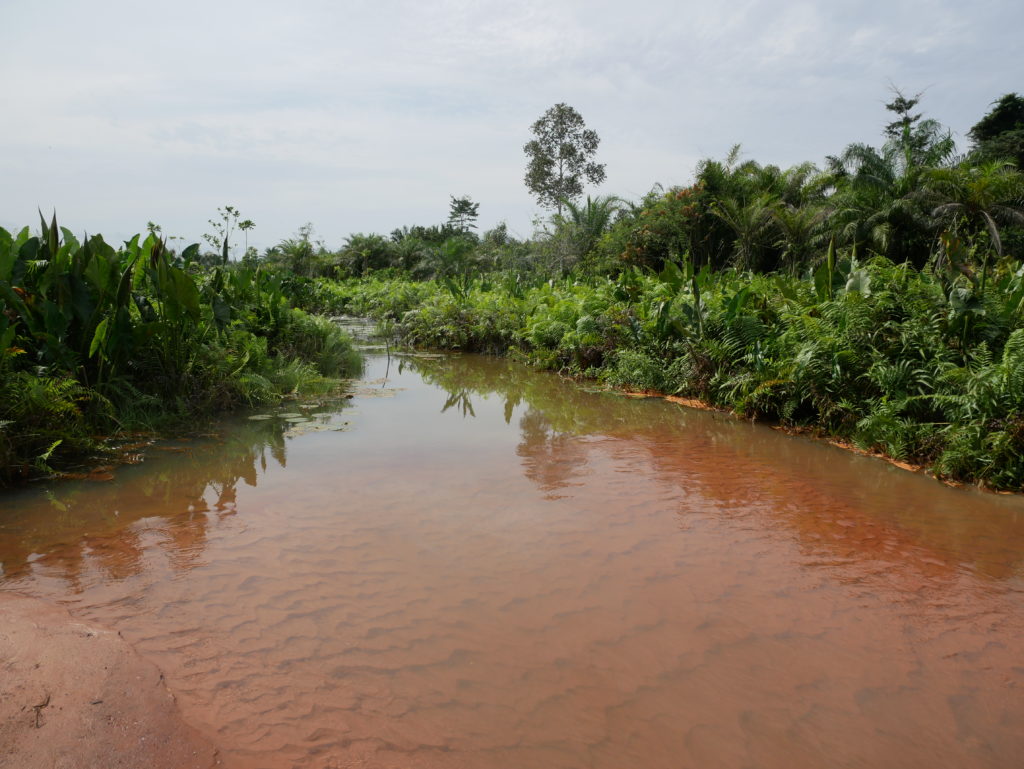
Relying on a distant and toxic water source strips people of their health and swallows up their capacity to focus on other priorities. Not only do household duties fall to the wayside for women, but spending intentional time with their children and spouses becomes next to impossible.
However, with Vongnigodo’s well now in the centre of the village, the process of collecting water is delightfully simple. Women can come and go with ease, filling their buckets whenever needed without using up hours of their day. This direct access is not just a convenience– it is a deep sigh of relief.
“Thank you to GAiN! Because of this well, there is no more sickness! No more stomach aches and diarrhea,” the three committee members said.
To maximize the restorative power of clean water, GAiN equipped 218 members of the village with Hygiene and Sanitation Training. The team also facilitated an interactive teaching on gender roles and domestic abuse with a group of 146 villagers to encourage empathy and understanding between men and women. The local church shared about the love of Jesus with the people of Vongnigodo and 293 people watched the JESUS Film. Within this group, 23 people made decisions to follow Jesus and 5 chose to receive further discipleship in their faith.
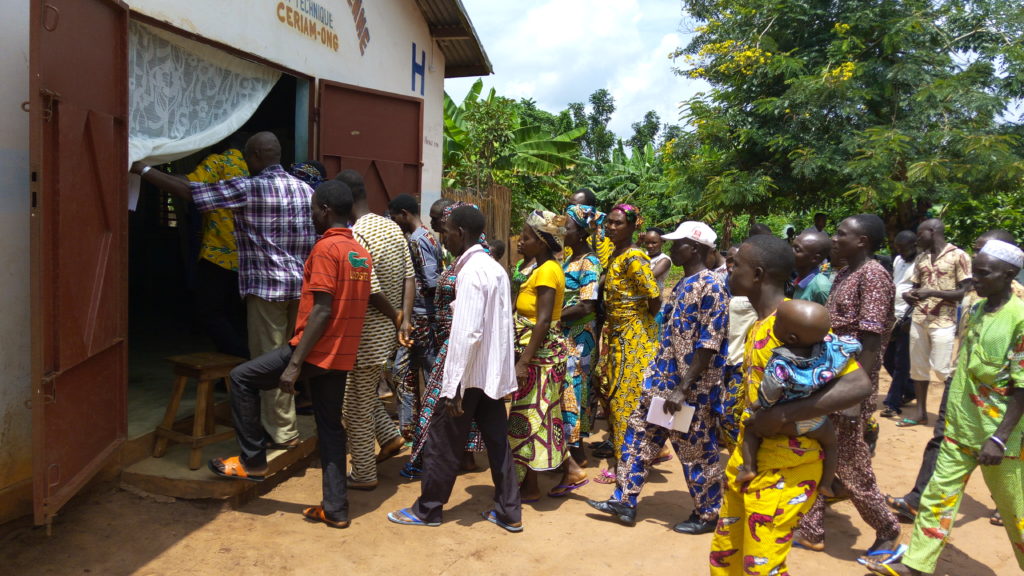
Féliciènne Agbode, a woman who watched the JESUS Film, shared, “I am very happy with the path from which the Lord delivered me by giving me the grace…”.
As a way to encourage believers in the village to gather together and worship, the new church in Vongnigodo received a church building. Training was also given to a designated team of leaders in the church.
Pastor Bernadin Avloko said, “I am very happy with this training which particularly allows me to learn the best ways for [the] church” Another villager, Jacques Avosse, was also incredibly impacted by GAiN’s work in his community.
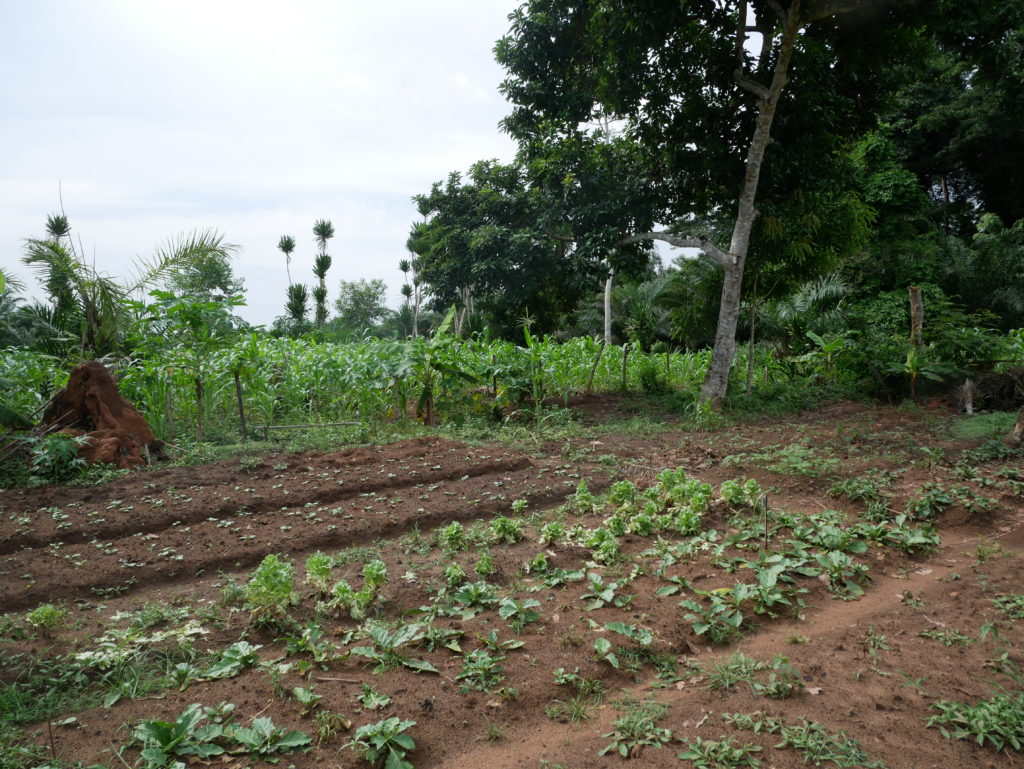
Direct access to safe water has transformed this small community in Benin from the inside out. Diseases have vanished, relationships have more time to flourish and energy for other activities has increased.
Clean water isn’t just a necessity for life – it is the ticket to an entirely different way of experiencing the world. Where there is access to safe water, there are mothers, fathers, pastors, farmers, children and elderly folk who can enjoy a healthy and secure way of life together. This life of abundance and wholeness is what we desire to give to the world.
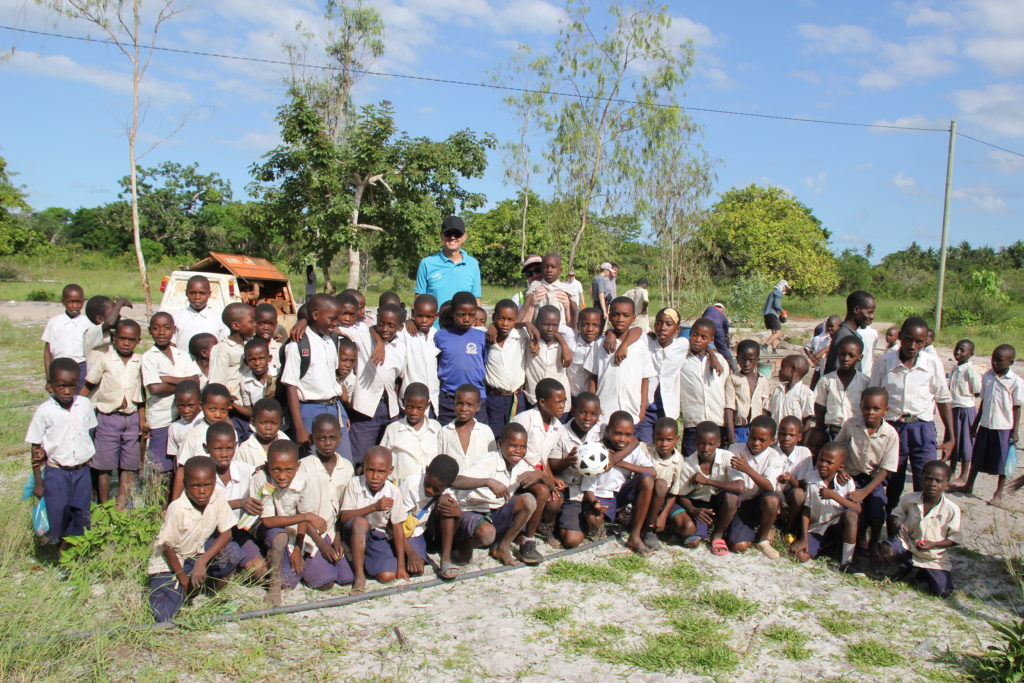
On a recent trip to Tanzania, a LIFE team from GAiN Australia and GAiN Canada was reminded of how the simplest things in life can have the most game changing effect on our lives.
Guided by the GAiN Tanzania field staff, the team travelled to different villages in the country to witness the life-changing impact that the Water for Life Initiative (WFLI) is having on communities. During one day of their trip, they visited a primary school that was in the process of receiving a well.
The team inspected the school’s cement pad and then walked to the water source that was used to make the concrete. The water source was no more than a swamp. To their dismay, the team watched as a student waded into the swamp, filled his plastic bottle and took a long drink from the filthy water.
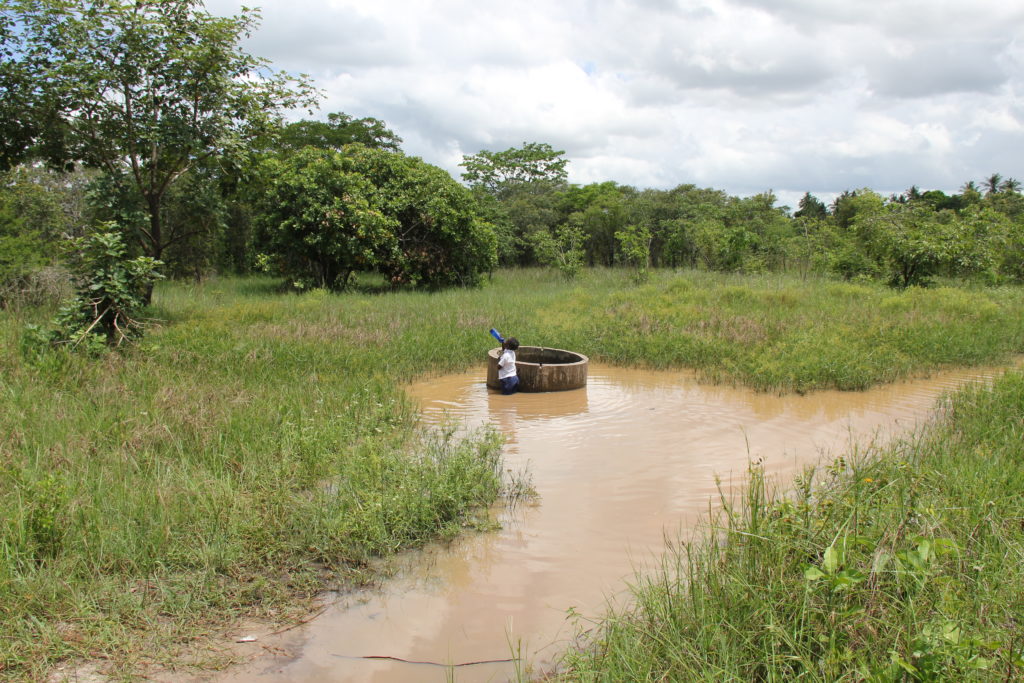
“To see this boy drink such dirty, brown water was sobering for our team,” LIFE team member Michael Dudok shared. “It definitely made us even more excited to be providing them with a new well.”
While visiting with some of the teachers at the school, the team noticed a green soccer field surrounded by trees. After asking if the students ever played sports on the field, one of the teachers explained that “the students love soccer, but they don’t have a ball.”
A team member immediately went back to their vehicle and brought out three soccer balls for the students to use. Seconds later, a flock of schoolboys surrounded him with buzzing excitement, all of them eager to take a kick at the new ball. Several members of the LIFE team headed out to the field with the boys and proceeded to play soccer with them for the rest of the afternoon.
“This simple gift demonstrated God’s love for them, and that couldn’t have been more evident from the joy on their faces,” said Monique Lieuwen, team member and Project Manager for WFLI.
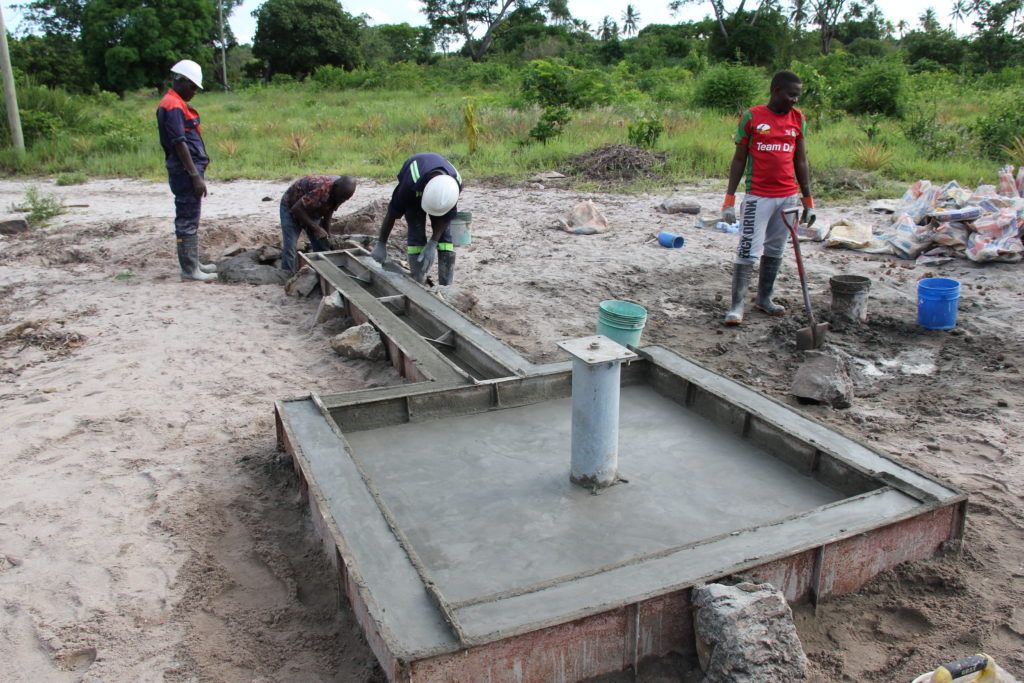
The following day, the GAiN Tanzania team and the LIFE team returned to finish installing the pump in the school’s well. No longer will these students have to drink from the swamp – they are now free to enjoy an endless supply of pure, crystal-clear water.
With a huge smile on his face, the teacher approached the team and pointed to a cluster of students that were playing a soccer game on the field.
“They haven’t stopped playing since you brought the ball,” he shared.
Clean water and new soccer balls have certainly changed the game for this school in Tanzania. As the students kick off their matches on the field and quench their thirst with safe, accessible water, they are not just embracing newfound resources– they are embracing the promise of a better tomorrow, filled with possibilities and potential.
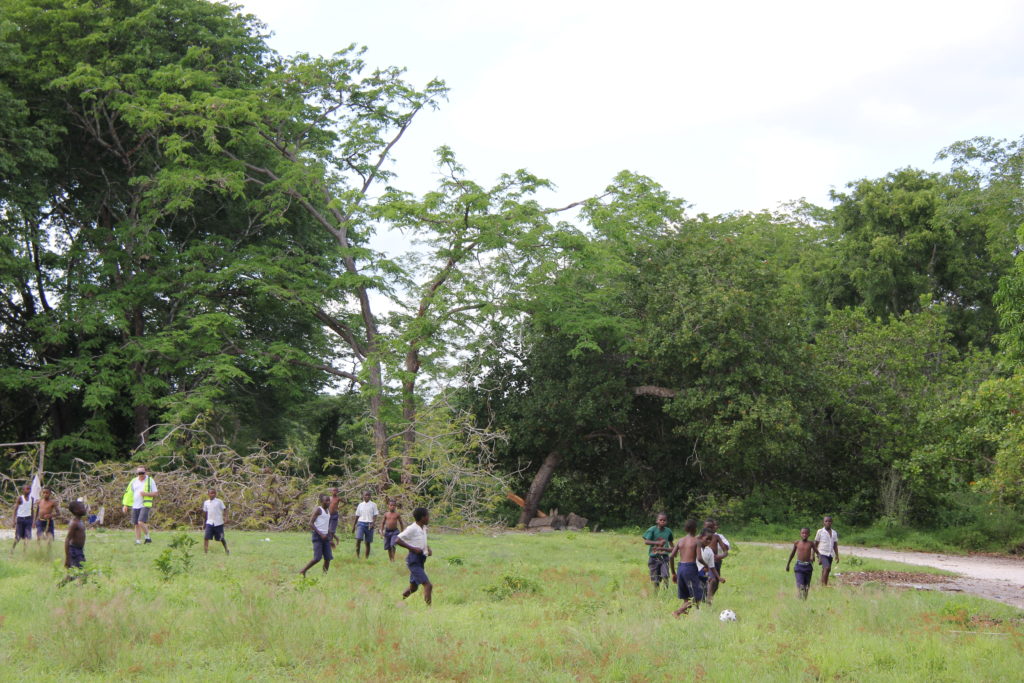
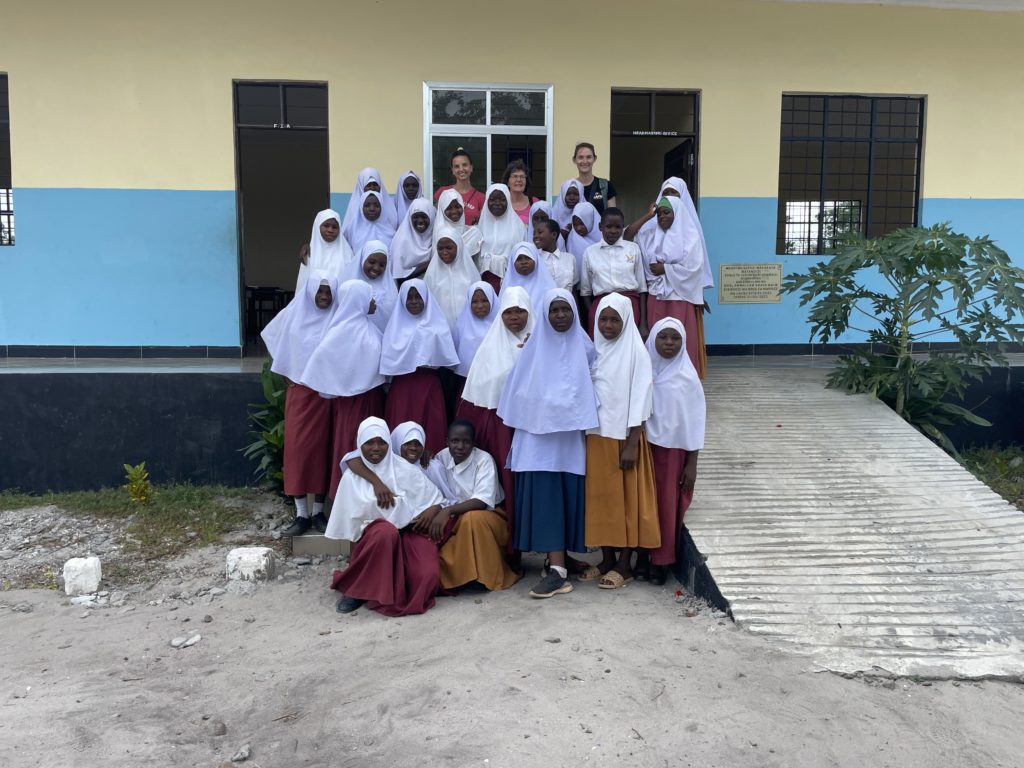
There is a desperate need around the world for women to be educated about their menstrual cycles and equipped with feminine hygiene products.
According to the World Bank, an estimated 500 million women and girls globally don’t have access to the facilities they need to manage their periods. Many of these women also lack any kind of knowledge about their cycle and what is happening to their bodies during this time.
While on a LIFE Team trip to see GAiN’s water strategy first-hand in Tanzania, there was a unique opportunity for GAiN’s Water for Life Initiative (WFLI) to respond to this need. In addition to the usual tasks of building a well pad and engaging with villages and the local church, the team decided to give away menstrual hygiene packages and educate girls on their cycles. This form of distribution and training is the first of its kind that GAiN has ever done.
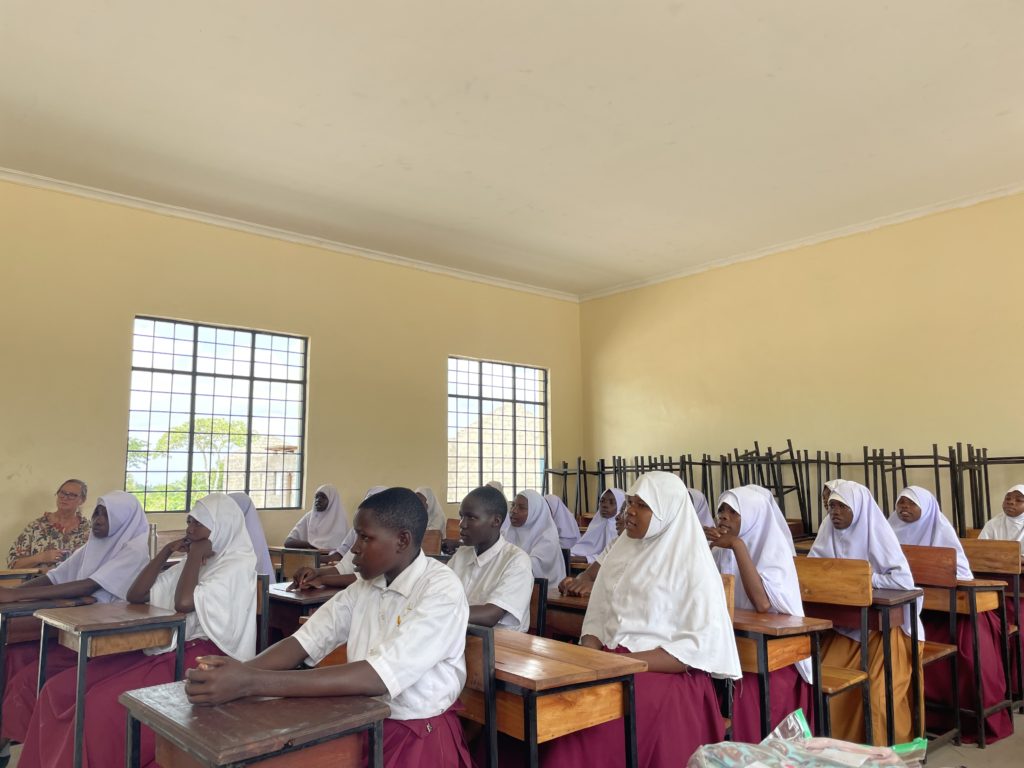
“We went to a secondary school in Kibiti, Tanzania where GAiN is currently working on providing a well,” said Monique Lieuwen, Project Manager for WFLI. “A lot of the kids walk over an hour to get to school.”
Monique explained how she and, Jess, Community Health Project Manager for WFLI, as well as two other female LIFE team members and GAiN Tanzania staff members Neema and Oliva all arrived at the school and met with the principal, who directed them to a private classroom. There they met with a group of 26 female students who were approximately ages 14-18. Each girl received a menstrual hygiene package, which came in different sizes and consisted of five reusable pads, one pair of underwear and a set of instructions. These pads were sewn by volunteers from Australia and are made from towels and flannel with a snap underneath to keep it secure.
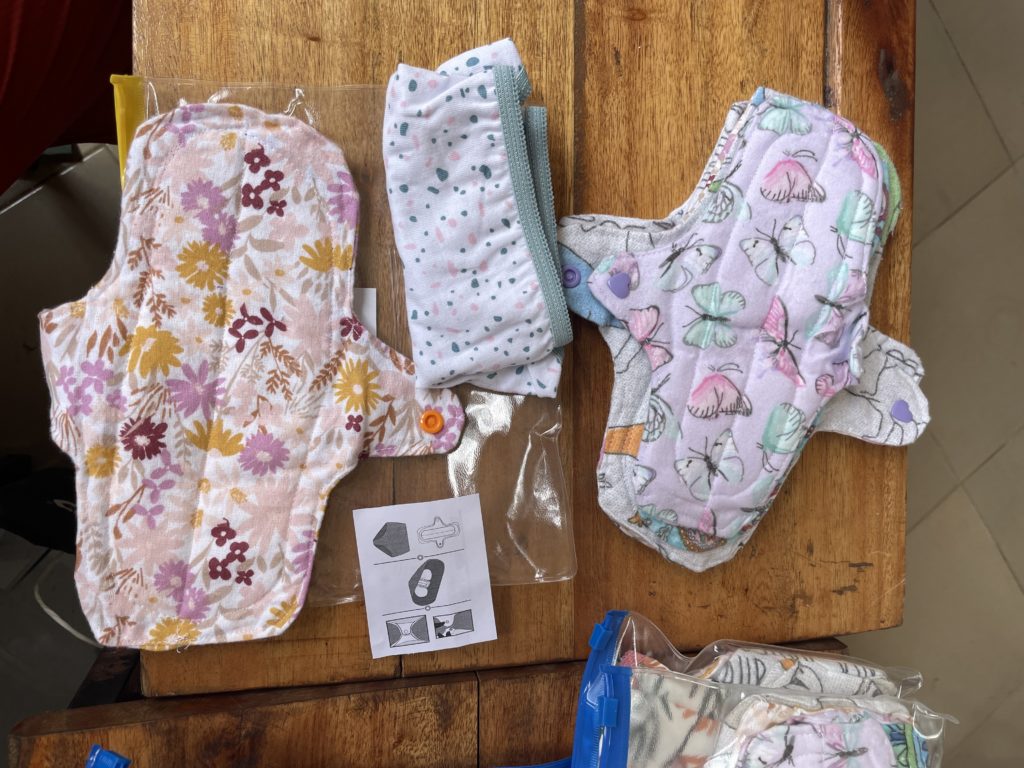
“At first, the girls were a little shy and nervous, but they opened right up,” Monique shared. “It was awesome. They were so engaged and excited, they had never received anything like this before. It wasn’t just a distribution– it was education.”
Neema and Oliva taught the girls how to use the reusable pads and keep track of their cycle. In return, the girls shared about their experience in dealing with their periods. Instead of pads, they would use cloth and then refold it to keep using it over and over. The lack of proper hygiene products is made worse by the shame culture surrounding a woman’s cycle. Many girls are forced to stay home or stay away from school to reduce the risk of anyone finding out that they are on their period.
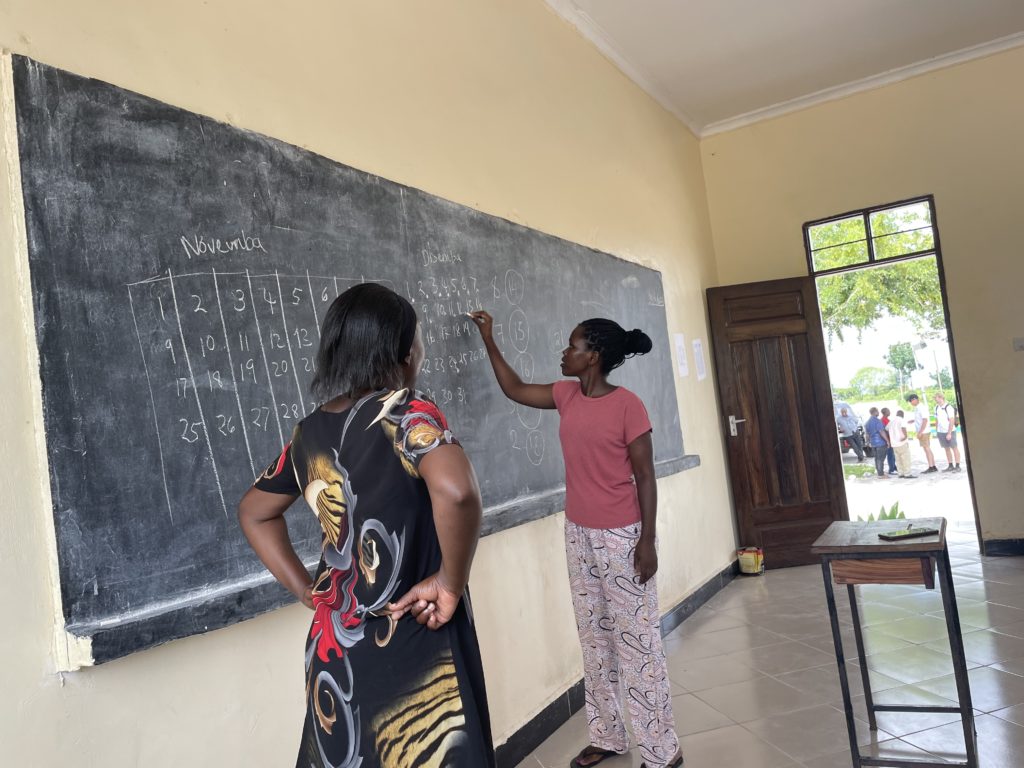
“When we gave them a pack, they hid it under their head coverings,” Monique recalled. “They didn’t want anyone to see them.”
Because of the embarrassment of being on their period, girls miss one week of education out of every month and sometimes drop out of school entirely. Mothers also succumb to shame and refuse to teach their daughters about menstruation, creating a generational pattern of silence and secrecy.
In an attempt to break some of the stigma and mystery associated with periods, Jess, Neema and Oliva crafted a simple menstrual training for the girls. The team not only discussed the physical function of a period, but explained that this shared female experience is a way to support one another socially. They also encouraged the students to talk with one another about their periods and look out for one another as a way to reduce feelings of shame and isolation.
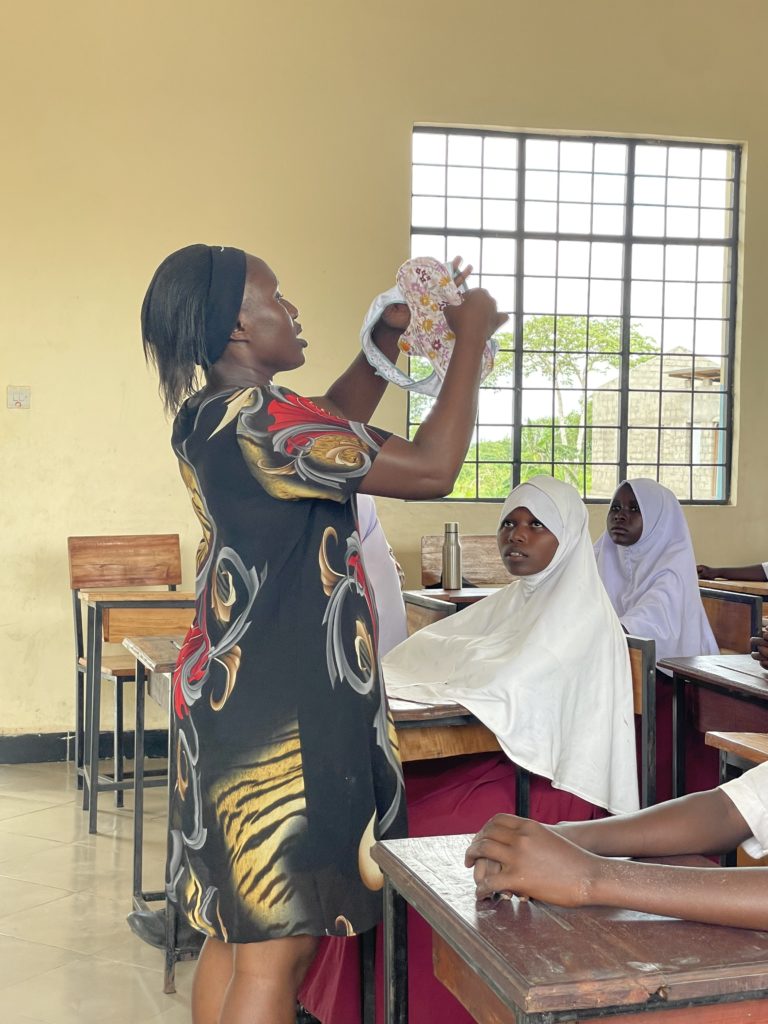
“One girl said, ‘thank you for the education,’” Monique shared. “That meant a lot, because it’s so much more than saying ‘thank you for the pads.’ Education is so much better and is what will have a lasting impact on these girls and their culture.”
These menstrual packages and training sessions are part of a trial project that will hopefully continue as long as there is funding and volunteer capacity to sew reusable pads. For now, we are thankful for the opportunity to have facilitated our first distribution and training with these teenage girls, and hope that it has gifted them with a measure of dignity and confidence for the future.
Source: https://www.worldbank.org/en/news/feature/2018/05/25/menstrual-hygiene-management
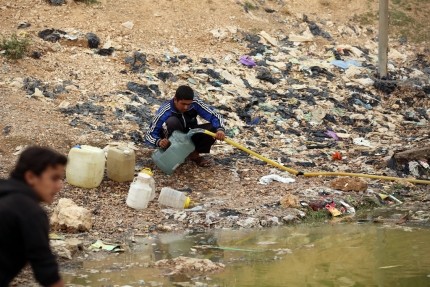
30 October 2017 – The Islamic State of Iraq and the Levant (ISIL or D’aesh) may be largely pushed out of Syria’s Raqqa governorate, but after years of oppression and nearly a year of intense fighting – marked recently by heavy airstrikes – humanitarian needs will continue to be large for some time, the top United Nations relief official told the Security Council Monday.
“Since the beginning of the anti-ISIL offensive in November last year, airstrikes and clashes have resulted in more than 436,000 people being displaced from Raqqa to 60 different locations, including in neighbouring governorates,” UN Emergency Relief Coordinator said briefing the Council via videoconference from Amman, Jordan.
“One conclusion is obvious: the impact of the Syria crisis continues to be profound.”
Expressing deep worry about the impact of fighting and airstrikes on civilians and civilian infrastructure in Raqqa governorate, with scores of civilians reportedly killed in recent months, he said he is also concerned for the safety and protection of civilians at risk from unexploded ordinance throughout Raqqa city, particularly those trying to return to their homes.
“Despite the directive issued by local authorities for civilians not to return to the city until it is deemed safe, the UN anticipates that people will go back to try to check on and protect their homes and their personal assets,” Mr. Lowcock explained.
Further to the east, in Deir Ez-Zor governorate, heavy fighting and airstrikes continue to result in civilian deaths and injuries. Large-scale displacement also continues, with the UN International Organization for Migration (IOM) reporting some 350,000 people displaced since August, including more than 250,000 people in October alone.
As for eastern Ghouta, Mr. Lowcock daily shelling has continued to be reported in recent weeks. Humanitarian access to eastern Ghouta – one of the four de-escalated areas where nearly 95 per cent of Syria’s besieged population lives – has been severely curtailed for months. Since the start of the year 110,000 people have received food assistance, out of an estimated population of nearly 400,000.
“Today the UN and partners delivered food, nutrition and health assistance to 40,000 people, he told the Council, warning however that an alarming number of child malnutrition cases have been recorded there, and more than 400 people with health problems require medical evacuation.
Overall, he said that more than 13 million people inside Syria still need humanitarian assistance. 6.3 million of them are exceptionally vulnerable and in acute need because of displacement, hostilities, and limited access to basic goods and services. “Conflict and violations of international humanitarian law continue to be the principal drivers of humanitarian need, with civilians in many parts of the country enduring massive suffering.”
“Against this background, the UN and our partners continue to implement in Syria one of the largest humanitarian operations in the world,” said Mr. Lowcock who is the UN Under-Secretary-General for Coordination of Humanitarian Affairs, noting, by example that in September, the World Food Programme (WFP) provided food assistance to more than 3.3 million people, the UN Children’s Fund (UNICEF) reached over 1.5 million people, and the World health Organization (WHO) reached over 800,000 people.
He also went on to point out that cross-border assistance provided for in last year’s Council resolution 2165 “has been a lifeline,” allowing the UN to reach millions of people in need in northern and southern parts of Syria. On average, aid was delivered to 2.76 million people a month through cross-border operations between January and August of this year.
“Our experience with cross-line operations from within Syria […] leads us to believe that it would be impossible to reach those people in a sustained manner from within Syria. I therefore regard a renewal of resolution 2165 as essential. Millions of people depend on the activities it mandates,” he underscored.
IF YOU WOULD LIKE TO KNOW HOW GAIN IS INVOLVED, CLICK HERE.
(Source)
(Image Source: UNICEF/UN066040/Souleiman)

